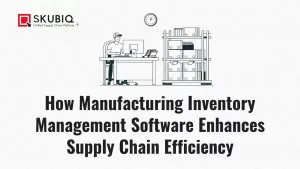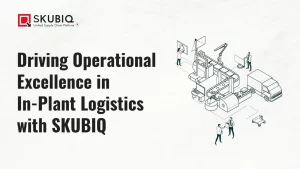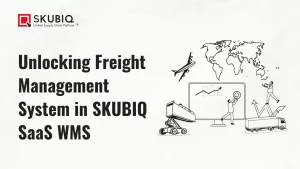In the world of business operations, the effective management of warehouse inventory is crucial for success. However, misconceptions often cloud the understanding of this essential function. Let’s delve into the myths surrounding warehouse inventory management and uncover the truth behind them.
Myth #1: More Inventory Means Better Management
Fact: Contrary to popular belief, flooding your warehouse with excessive inventory doesn’t equate to better management. In reality, excess inventory ties up capital, occupies valuable storage space, and increases the risk of obsolescence or damage. Effective inventory management focuses on maintaining optimal stock levels to meet demand without overstocking.
Myth #2: Manual Processes Are Sufficient
Fact: While manual processes may have sufficed in the past, the complexities of modern supply chains demand more sophisticated solutions. Relying solely on manual methods such as spreadsheets or paper-based tracking is prone to errors, inefficiencies, and delays. Implementing automated warehouse management systems (WMS) can streamline operations, reduce errors, and improve overall accuracy.
Myth #3: Inventory Management Is Only About Counting Products
Fact: Inventory management extends far beyond simply counting products on shelves. It involves forecasting demand, optimizing replenishment cycles, managing order fulfillment, and strategically allocating resources. By leveraging data analytics and forecasting tools, businesses can anticipate market trends, optimize inventory levels, and enhance customer satisfaction.
Myth #4: Any Warehouse Management System Will Suffice
Fact: Not all warehouse management systems are created equal. While there are various options available, selecting the right WMS software is crucial for efficient inventory management. Businesses should consider factors such as scalability, integration capabilities, customization options, and user-friendliness when choosing a WMS that aligns with their specific needs and objectives.
Myth #5: Inventory Management Is Too Costly
Fact: While implementing advanced inventory management systems may require an initial investment, the long-term benefits far outweigh the costs. Improved accuracy, reduced carrying costs, minimized stockouts, and enhanced operational efficiency contribute to significant cost savings over time. Investing in the right inventory management solution is an investment in the future success of your business.
Myth #6: Inventory Management Is Only Relevant for Large Businesses
Fact: Effective inventory management is essential for businesses of all sizes, not just large corporations. Regardless of scale, every organization faces inventory challenges that can impact profitability and customer satisfaction. Implementing streamlined inventory management processes enables businesses to operate more efficiently, regardless of their size or industry.
Myth #7: Inventory Management Is Static
Fact: Inventory management is a dynamic process that requires continuous monitoring, evaluation, and adjustment. Market trends, consumer preferences, and supply chain disruptions can all impact inventory levels and distribution strategies. By embracing agility and adaptability, businesses can respond effectively to changing market conditions and maintain a competitive edge.
Myth #8: Inventory Management Is Only About Storage
Fact: While storage is a crucial component of inventory management, it represents only one aspect of the broader picture. Effective inventory management encompasses everything from order processing and fulfillment to demand forecasting and supplier management. By optimizing these interconnected processes, businesses can enhance efficiency throughout the entire supply chain.
Myth #9: Inventory Management Doesn't Impact Customer Experience
Fact: On the contrary, inventory management plays a significant role in shaping the customer experience. Stockouts, delayed deliveries, and inaccurate inventory levels can lead to dissatisfaction and erode customer loyalty. By ensuring product availability, expediting order fulfillment, and maintaining accurate inventory records, businesses can deliver a seamless and satisfying customer experience.
Myth #10: Inventory Management Is Separate from Overall Business Strategy
Fact: Inventory management is an integral part of overall business strategy, directly impacting various aspects of operations, finance, and customer service. Aligning inventory management goals with broader business objectives enables organizations to optimize resources, mitigate risks, and drive sustainable growth. By treating inventory management as a strategic priority, businesses can maximize efficiency and profitability.
Conclusion
Dispelling the myths surrounding warehouse inventory management is essential for businesses seeking to optimize their operations and drive success in today’s competitive landscape. By embracing innovative technologies, leveraging data-driven insights, and adopting a strategic mindset, organizations can overcome challenges, enhance efficiency, and deliver exceptional customer experiences.
FAQs (Frequently Asked Questions)
1. What are the key benefits of implementing a warehouse management system?
Implementing a warehouse management system offers numerous benefits, including improved inventory accuracy, enhanced order fulfillment, increased efficiency, and better decision-making capabilities.
2. How can businesses determine the right inventory management solution for their needs?
Businesses should consider factors such as scalability, integration capabilities, customization options, and user-friendliness when selecting an inventory management solution that aligns with their specific requirements and objectives.
3. Is inventory management only relevant for businesses in certain industries?
No, effective inventory management is essential for businesses across all industries and sizes. Regardless of the industry, every organization faces inventory challenges that can impact profitability and customer satisfaction.
4. How often should businesses conduct inventory audits?
The frequency of inventory audits depends on various factors, including the nature of the business, the industry, and regulatory requirements. However, regular inventory audits are essential to maintain accuracy, identify discrepancies, and prevent stockouts or overstocking.
5. Can inventory management software integrate with other business systems?
Yes, many inventory management software solutions offer integration capabilities with other business systems such as accounting software, customer relationship management (CRM) platforms, and e-commerce platforms, enabling seamless data flow and process optimization.



